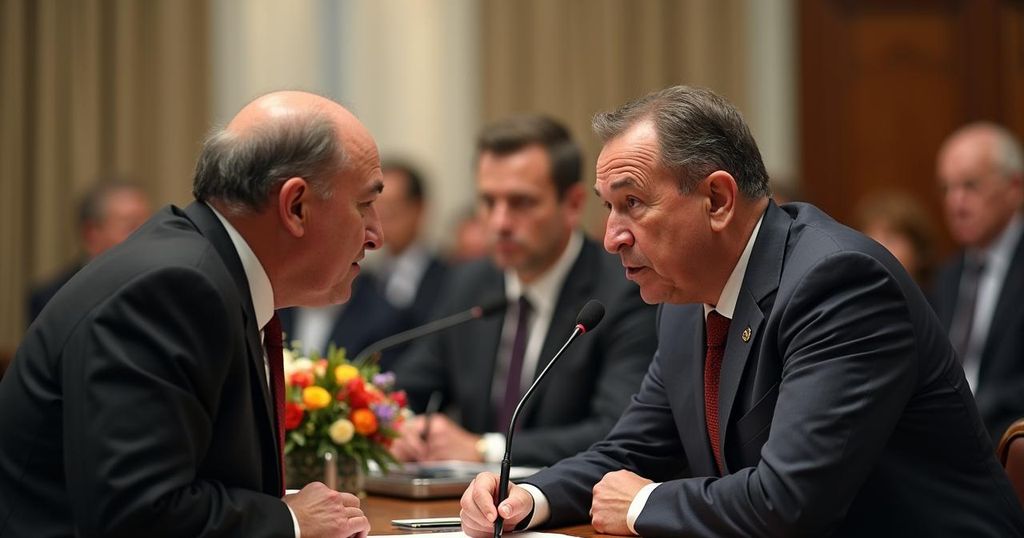On January 17, Dutch Prime Minister Mark Rutte apologized to Indonesia for the excessive violence committed by Dutch forces during the 1945-49 war of independence. A thorough investigation revealed widespread and systematic war crimes, challenging previous narratives of sporadic violence. Rutte expressed deep regret for the actions and failure of past governments to acknowledge these crimes.
On Thursday, January 17, Dutch Prime Minister Mark Rutte issued a formal apology to Indonesia in light of a significant historical review that revealed the Netherlands committed systematic and excessive violence during Indonesia’s war of independence from 1945 to 1949. This investigation, conducted over a period exceeding four years by three historical research institutions, challenged the long-standing belief held by the Hague government that Dutch military actions were sporadic while attempting to restore control post-World War II. The scholarly inquiry found that atrocities committed in the former Dutch East Indies occurred in a systematic manner and that the use of extreme violence by Dutch forces was widespread and often deliberate. The research concluded that such violence was tacitly approved at various levels, including political, military, and legal authorities. “There was a collective willingness to condone, justify and conceal it, and to let it go unpunished,” stated the researchers. They elaborated that this behavior was driven by a singular purpose: to secure victory in the war. Among the reported crimes were extrajudicial executions, torture, inhumane detention conditions, the destruction of property, and indiscriminate air raids against civilians. The study further acknowledged the challenge in determining precise figures related to the crimes and victims involved. Historically, the issue of war crimes had been brought to light by a former Dutch veteran in 1969, yet successive Dutch administrations maintained that only isolated incidents occurred, portraying the military’s conduct as generally appropriate. The findings of the recent review effectively render that defense untenable. In his statement, Prime Minister Rutte not only expressed his apology for the historical atrocities but also addressed the shortcomings of previous governments in acknowledging these actions. He remarked, “For the systematic and widespread extreme violence from the Dutch side in those years and the consistent looking the other way by previous governments, I apologize deeply to the people of Indonesia.” Rutte recognized the gravity of the findings, calling them “harsh, but unavoidable,” and asserted the government’s commitment to accepting full responsibility for the “collective failure.” This apology, while not the first from the Netherlands regarding its colonial past, marks a significant milestone as it acknowledges a deliberate campaign of violence. During a visit to Indonesia in March 2020, King Willem-Alexander also made a notable apology for the “excessive violence” employed by Dutch troops. Similarly, in 2016, Dutch Foreign Minister Bert Koenders had expressed apologies for a massacre perpetrated by Dutch forces at the cost of 400 Indonesian lives in 1947.
The recent public apology by Dutch Prime Minister Mark Rutte stems from a comprehensive historical analysis that uncovers the nature of Dutch military actions in Indonesia during its independence war from 1945 to 1949. This event marks a critical juncture in Dutch-Indonesian relations, as prior views held by the Dutch government had downplayed the extent of violence committed by their forces. The prolonged denial and subsequent reassessment highlight the importance of addressing historical injustices to foster reconciliation between nations.
The apology offered by Prime Minister Mark Rutte signifies a pivotal acknowledgment of the systematic violence executed by Dutch forces during Indonesia’s struggle for independence, confirming the findings of a thorough historical review. This statement illustrates a significant shift in the Netherlands’ handling of its colonial legacy, seeking to promote healing and accountability in Dutch-Indonesian relations. The findings necessitate heightened awareness and acknowledgment of the past atrocities, paving the way for more honest dialogue about historical legacies and their implications.
Original Source: www.newsfirst.lk







